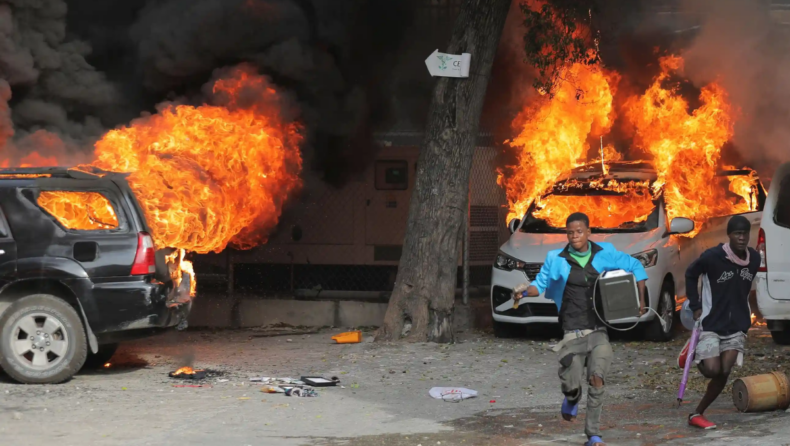Instability is at an all time high in Haiti. In 2021, the Haitian president was assassinated which thus, contributed to the already unstable governance of the country. Haiti achieved freedom from the French colonial rule and has struggled to develop like other previously colonized countries.
The country was declared to be free in 1825. Haiti then had agreed to pay 22 billion US dollars of today’s worth, in reparations. So far, around 80% of the revenues generated by the country has gone into paying off their debt.
It has experienced political instability, violence, foreign interventions, and horrible natural calamities. These three parameters combined have led to the downfall of Haiti, which once used to be one of the richest colonies of the Americas.
It has now become a country that struggles a lot to keep things afloat.
The United States of America has a long history as it occupied Haiti for decades. Donald Trump restricted the immigration of Haitians, however, President Biden has vowed to allow the natives to now migrate to rather safer States.

Misery faced by Haiti so far:
On August 14th, 2021, the country experienced a devastating earthquake of the magnitude of 7.2. Nearly 220,000 people lost their lives which also included a hundred of United Nations staff as they were on a mission to build houses in the capital city of Port-au-Prince. All this was when COVID-19 was at its peak, hence leading to an even more problematic situation.
It was experiencing poor medical infrastructure, emergence of new variants, misinformation, etc. In May, 2022, the World Bank approved an extra amount of 35 million US dollars to help with the country’s COVID-19 scenario.
After the United States of America withdrew, in 1957 it saw the rule of the dictator, François Duvalier and his son, Jean-Claude. Their almost three decade lone dictatorship drained the country in several ways. Due to this, around 30,000 people were either dead or missing. Finally, in 1986, massive protests erupted in the country which eventually drove Duvalier out of the country. Thus, declaring it a democracy.
Haiti is said to be the poorest country of Western Hemisphere. About 50% of the population is living in, under or just above the poverty line. People are barely able to make the ends meet. With the limitlessly increasing problems with respect to inflation, basic necessities, diseases, violence, its countrymen has in an even more disastrous situation one can imagine.
Haiti has been depending on external financial aid for a very long time. The United Nations gave more than 13 million dollars in aid between 2010 and 2020.
Since 2010, trade has composed 43 percent of the country’s GDP on average. The country’s major industries include sugar refining, flour milling, and cement and textile manufacturing; textiles accounted for about 86 percent of all exports in 2020. The United States is Haiti’s largest trade partner, followed by Canada and Mexico.
Haiti today:
At present, Haiti is struggling with an almost civil war-like scenario. The capital is seeing massive protests that are breaking out in different parts. The reason behind it is the increasing prices of fuels. Inflation has created unrest. Protesters have been attacking banks, warehouses, and shops, even looting them.
Even the citizens which are in favor of the government are not being spared.
This has led to the people of Haiti scrambling for basic needs like food and water. Hunger is prevalent all over. Due to the protests, there is a water crisis. Protesters tend to stop or halt the supply of water leading to this shortage.
“Finding clear water is a problem. We put Clorox (cleaning product) in the water to be able to drink it, you can’t find water,” a resident said.
The prime minister, Ariel Henry, has said to be not doing a good job at taking care of the situation or bringing peace to the areas. The weak administration has also been a reason behind the distress faced by the people.
Fuel for transport and cooking is scarce. Price per gallon has hiked from 2 dollars to 4.78 dollars which is making it difficult for citizens to even live in the country.
Gang violence seems unstoppable. Two Haitian journalists were killed for reporting the violence taking place in the capital city. The gangs possess illegal ammunitions, weapons; kidnapping for ransom has also increased. Such gangs have been controlling neighborhoods thus, killing hundreds, raping women and girls, shooting teenagers dead over the suspicion of spying.
Haiti is unable to see the light at the end of the tunnel. Over 95,000 children had their education disrupted because of the violence. The country is unable to bear the losses incurred. These losses are most felt by the marginalized and minority communities of Haiti. Every day has a new problem. Haitians are now losing whatever little they possess.












